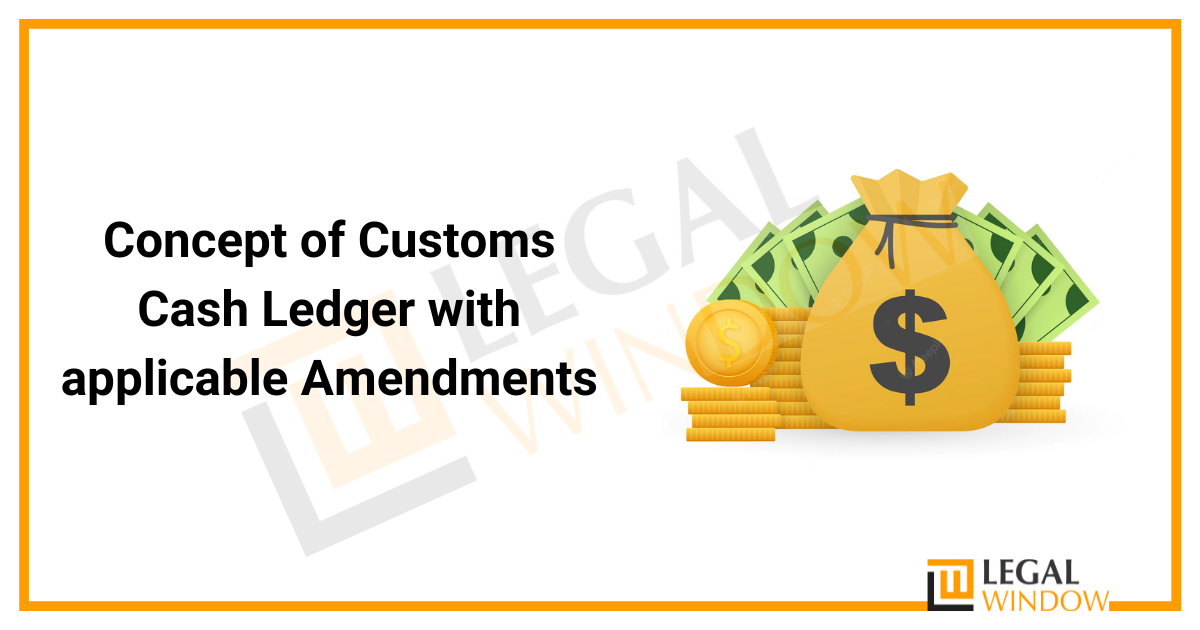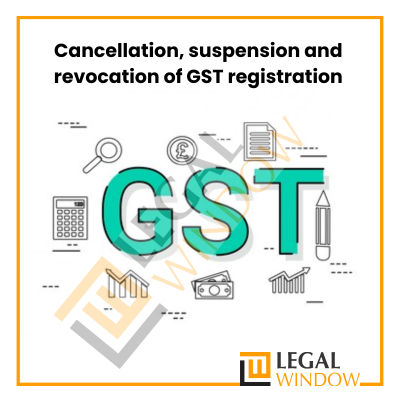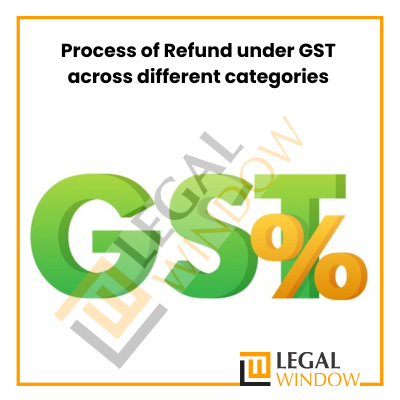
When a taxpayer constructs a Challan, the amounts to be contributed to each Minor Head inside each Major Head are chosen by the taxpayer. The Electronic Cash Ledger is updated with the money under the Major and Minor Heads as per the Challan after the payment is received successfully and the CIN is notified to the GST system. In this article, we’ll discuss Customs Cash Ledger Applicable from 1st June 2022.
| Table of Content |
Key Abstract- Customs Cash Ledger Applicable from 1st June 2022
The Customs (Electronic Cash Ledger) Regulations, 2022, are published by the Central Board of Indirect Taxes and Customs. The Regulations include regulations on how to keep an electronic cash ledger, how to make payments from an electronic cash ledger, and how to get a refund.
Concept of Electronic Cash Ledger
The Electronic Cash Ledger is a taxpayer account kept by the GST system that shows cash deposits in recognised banks as well as tax and other dues paid by the taxpayer. Tax Deducted at Source (TDS) and Tax Collected at Source (TCS) are also recorded as cash deposits by the taxpayer in the Electronic Cash Ledger.
Legal Window will help you through filing of your TDS Return, ITR Return and GST Return. Also, Get your business, company or Trust register with our experts and leave behind all the worries.
A registered taxpayer can deposit cash at recognised banks utilising the approved procedures to the Electronic Cash Ledger using any of the GST Portal’s Online or Offline methods. Cash deposits can be used to pay for things like tax debt, interest, fines, and fees, among other things.
IGST, CGST, SGST/UTGST, and CESS are the four major heads in the Electronic Cash Ledger. Each of these Major Heads has the five Minor Heads listed below:
- Tax
- Interest
- Penalty
- Fee
- Others
On March 30, 2022, Customs Notification No. 20/2022 was formally issued, notifying and explaining the contents of the new Customs (Electronic Cash Ledger) Regulations, 2022. It will take effect on June 1, 2022.
Customs Cash Ledger Applicable from 1st June 2022
The notice described how to use the ledger under the following five headings and in five alternative formats:
- Manner of maintaining an e-cash ledger- Form ECL-1: General rules state that payments made towards duty, interest, penalty, charge, or any other payment under Customs law and regulations must be made with the ledger on the common site. Ledger will not pay interest on deposits. The shared platform will also produce a unique identification number for any debit or credit transactions, which will be used for applicable customs declarations or official papers addressing imports and exports.
- Manner of making deposits in e-cash ledger- Form ECL-2: Deposits will be made by producing a deposit challan on the platform, which will be valid for 15 days. Deposits will be accepted by Internet banking through an authorised bank, NEFT or RTGS, and over-the-counter payment through an authorised bank. Over the counter payments are limited to Rs. 10,000 per day. Such restriction, however, must not apply to deposits made by the Government Department or if the Jurisdictional Commissioner of Customs authorises a greater deposit.
When depositing via NEFT/RTGS or over the counter, Form ECL-2 and a deposit challan must be submitted to the bank. When the money is credited in the ledger, the bank generates the unique identification number, which is also indicated on the deposit challan.
- Manner of making payment from the e-cash ledger- Form ECL-3: There are 2 ways to make payment- By the customs automated system and by the person. In the customs automated system, a person can give consent for auto-debit in his customs declaration. Whereby if the amount is available in e-cash ledger, payment Chillan will be automatically debited. The payment can be done by the person himself on the basis of his own ascertainment of duty or sum payable.
- Manner of maintaining electronic duty payment ledger- Form ECL-4: The debited amount will be displayed in the e-cash ledger, while the credited amount will be displayed in the e-duty payment ledger.
- Refund- Form ECL-5: The balance in the electronic cash ledger after payment of duty, interest, penalty, fee, or any other sum payable may be applied for reimbursement on the common portal using such form by the person. When the application is received, the refund is expected to be processed or decided within 30 days of the application date. The reimbursement will be sent into the bank account of the individual who has registered with the customs automated system. Please keep in mind that the site will also provide registered users with means to communicate their questions, concerns, or discrepancies.
Manner of making Payment from the Electronic Cash Ledger
A person may use the amount available in the electronic cash ledger to pay duty, interest, penalty, fee, or any other sum payable by such person or any duties of customs, including cesses and surcharges levied as duties of customs under any other law in force at the time, by generating a payment challan in FORM ECL-3.
- By the customs automated system in compliance with the Act’s requirements, rules, or regulations; or
- On the basis of his own calculation of the amount of duty or payment owed by such person.
Endnote
The amount applied for from the balance will no longer be available for use by the person, and its refund will be decided within thirty days of the date of application on the common portal, and the amount to be refunded will be credited to the person’s bank account registered with the customs automated system. Furthermore, a registered individual must notify the common portal of any difference in his electronic cash ledger.
CA Pulkit Goyal, is a fellow member of the Institute of Chartered Accountants of India (ICAI) having 10 years of experience in the profession of Chartered Accountancy and thorough understanding of the corporate as well as non-corporate entities taxation system. His core area of practice is foreign company taxation which has given him an edge in analytical thinking & executing assignments with a unique perspective. He has worked as a consultant with professionally managed corporates. He has experience of writing in different areas and keep at pace with the latest changes and analyze the different implications of various provisions of the act.
Categories
- Agreement Drafting (23)
- Annual Compliance (11)
- Change in Business (36)
- Company Law (147)
- Compliance (88)
- Digital Banking (3)
- Drug License (3)
- FEMA (17)
- Finance Company (42)
- Foreign Taxation (6)
- FSSAI License/Registration (14)
- GST (116)
- Hallmark Registration (1)
- Income Tax (199)
- Latest News (34)
- Miscellaneous (164)
- NBFC Registration (8)
- NGO (14)
- SEBI Registration (6)
- Section 8 Company (7)
- Start and manage a business (20)
- Startup/ Registration (126)
- Trademark Registration/IPR (40)
Recent Posts
About us
LegalWindow.in is a professional technology driven platform of multidisciplined experts like CA/CS/Lawyers spanning with an aim to provide concrete solution to individuals, start-ups and other business organisation by maximising their growth at an affordable cost.








